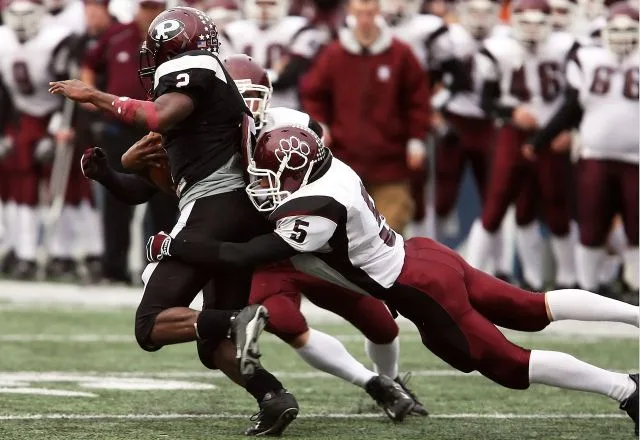Parkinson’s disease is a neurodegenerative disorder that affects over 8 million people worldwide. The condition, characterized by tremors, slowness of movement, stiffness, and difficulty balancing, impacts people after the age of 60. While symptoms do often begin gradually, they do worsen over time.
Although experts have yet to confirm the causes of Parkinson’s, there are those who believe that head trauma may increase the risk. With the National Football League (NFL) season recently kicking off, one has to wonder if the head trauma associated with playing American football may increase one’s risk for this neurodegenerative disorder.
Contact Sports and Neurodegenerative Disorder Risk
In 2016, the NFL publicly acknowledged the association between American football and chronic traumatic encephalopathy (CTE). CTE is a brain disorder that triggers the death of brain cells, causing symptoms that include memory loss, impulse control problems, aggression, depression, anxiety, and dementia.
Individuals who play contact sports face a higher risk of sustaining head trauma, which can jeopardize neurological health. Michael Alosco is from Boston University’s CTE center. Speaking to CNN, Alosco shared that there have been years of research into the connection between boxing and Parkinson’s disease. The interest increased following boxing legend Muhammad Ali’s death at 74 after suffering from Parkinson’s disease,
“Both boxing and football have this commonality of a lot of exposure to repeated hits to the head. So we wanted to see, ‘Well, is this also a relationship we see from playing [American] football?’”
In their study, Alosco and his team analyzed the data of 1,875 men. The men were enrolled in an online clinical study designed to study Parkinson’s disease, sponsored by The Michael J. Fox Foundation for Parkinson’s Research. 729 men played American football, mostly at the amateur level, whilst the remaining 1,146 played non-football sports.
After controlling for demographics, the researchers surveyed the participants on their current diagnosis of Parkinson’s or Parkinsonism. Parkinsonism is a group of neurological disorders that cause movement problems like those seen in Parkinson’s disease).
The participants were also asked about their sporting history, particularly at what age they started American football, the highest level at which they played, and how many seasons they had played at each level.
American Football Increases Risk of Parkinson’s
According to the findings of the study, published in JAMA Network Open, those who played American football faced a higher risk for parkinsonism or a Parkinson’s diagnosis. Their risk increased slightly to 65% compared to their non-contact sports counterparts.
Additionally, the researchers noted that the longer a participant played American football, the greater their risk. Men who had played for five or more seasons were twice as likely to report a Parkinsonism or Parkinson’s diagnosis. Also, those who played football at a college or professional level were 2.93 times as likely to have developed Parkinson’s or Parkinsonism compared to youth or high-school players.
Should we ban American football?
This is not the first study to find an association between American football and neurodegenerative disease. Earlier this year, a Harvard study linked the sport to an increased risk of dementia.
That said, this recent study does have its limitations. For instance, it only looked at correlation and failed to show that playing American football can cause Parkinson’s.
As such, more research needs to be conducted and such studies need to feature a wider group of participants before we can confirm that American football is a risk for Parkinson’s disease.
“Ideally, we’re moving forward to address those barriers and engage these populations in research,” Alosco said. “We have more work to do. And we have to interpret these findings in the context of this being a sample of White men.”
Making sports safer
We’re going to have to wait before we can confirm that American football can cause Parkinson’s in players. In the meantime, we do know that contact sports pose a risk to brain health. As such, we need to take the necessary precautions in this regard.
“Sports have so many benefits for kids and adults, and we need these sports, but we also need to protect the brain,” said Julie Stamm, a neuroscientist and author to CNN. Stamm is also a clinical assistant professor of kinesiology at the University of Wisconsin Madison.
Both Alosco and Stamm recommend delaying tackling in youth football until high school, and minimizing the number of hits players take during sports practice.
Speaking to Medical News Today, Dr. Michael S. Okun, the Parkinson’s Foundation National Medical Advisor, adds that we need to avoid concussions and especially repeat concussions.
“This is easier said than done; however, folks need to be educated before and during participation in sports about the plethora of data we now have linking head injuries to future neurological consequences.”
References
Bruce, H. J., Tripodis, Y., McClean, M., Korell, M., et al. (2023). American Football Play and Parkinson’s Disease Among Men. JAMA Network open, 6(8), e2328644. https://doi.org/10.1001/jamanetworkopen.2023.28644





![women [longevity live]](https://longevitylive.com/wp-content/uploads/2020/01/photo-of-women-walking-down-the-street-1116984-100x100.jpg)









